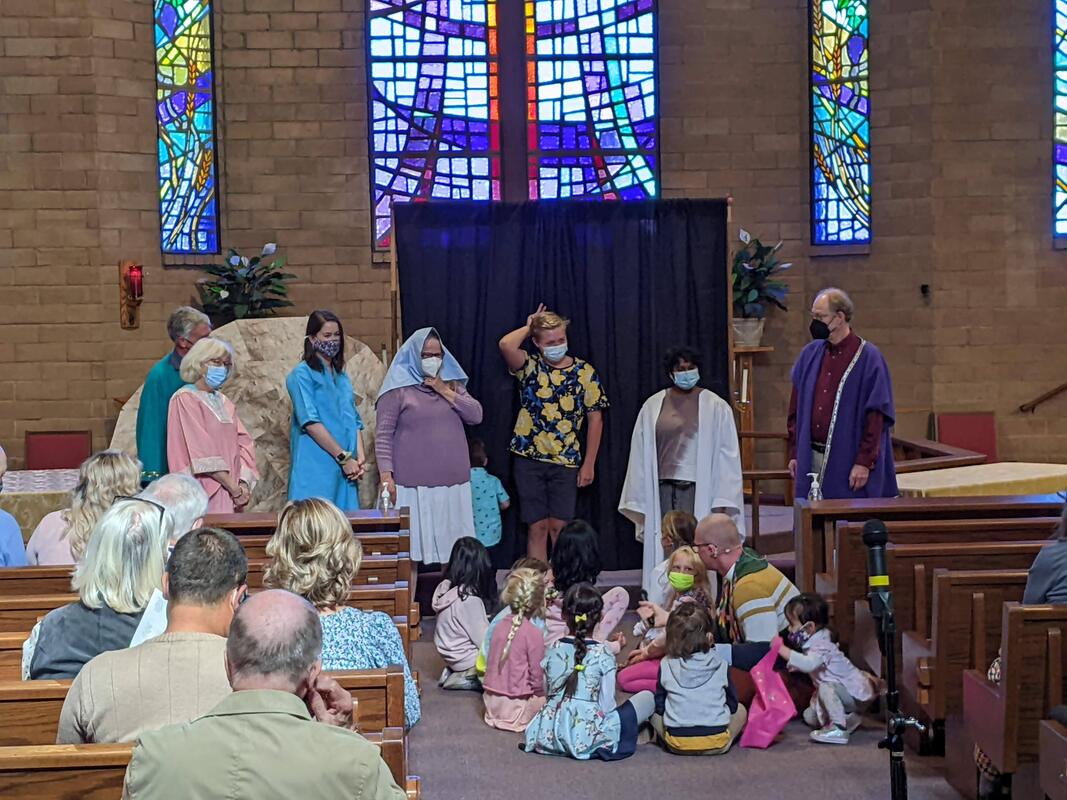 With all of the nasty rhetoric going around in our country regarding our LGBTQIA siblings (don't say gay, anti trans legislation,Twitter wars etc), I have been pondering to myself, what does a Christian look or sound like? What does a gay or transgendered person look like? As a cis-het woman, raised in a time and part of the country where transgender was not a common conversation, I have found deep meaning and profound wisdom in learning from friends and colleagues who identify as transgender and gay. My first conversation with an openly gay person was in 2003 when I was working in Alaska on a small cruise ship, I’ll call him Sam. We worked closely together, long hours in a very public-facing role. As a result of our friendship, and thanks to the graciousness of his heart, I was able to learn his story. He shared about the difficulty it was to be a gay man in a time where it was certainly not accepted. He spoke about the struggle that it was to come out to his family. And because of that relationship and his open-ness I began to see those around me differently. I had grown up in a family and high school culture that freely threw the word gay around derogatorily. I was raised in a culture where weakness was not celebrated and tears were ridiculed; in short I was raised in such a way that gender was binary and male was clearly superior. This meant, too that anybody who dared toe the line of presenting as anything other than what you were supposed to be was made fun of. Ostracized. And being a gay boy meant you were…well I don’t need to finish writing that ugly stereotype. In reflecting on the culture of how I was raised, I am simultaneously embarrassed and understanding. I am not sure most of the people around me knew better, and neither did I. But thanks so much to my friend in Alaska, and for his willingness to share who he was and the wounds he had experienced for merely being who he was---a gay man. In so many ways, my friend was like Jesus in the story we will be reading on Sunday—the story of Thomas who needed to see Jesus’ wounds. I know, I know, that’s not the shortest way to describe the story—but I don’t want to use the ‘d” word. Because, to me, Thomas is a hero of the gospel of John. He is a hero because he understood, perhaps more clearly than any of the other disciples about who Jesus was and who he would always be. Jesus was a vulnerable man, and a vulnerable God. He was crucified for being a pacifist, anti-power, anti-“the way things have always been” kind of leader. And when challenged and pushed he refused to fight back. Jesus chose the path of vulnerability and relatbibilty to us humans. And he did that by bearing his wounds and carrying those as proof of his selfless love for all of us. So when I hear terrible slander coming out about our marginalized friends and siblings, I want to scream in anger, I want to weep with sadness over all of the people who will be told they are unlovable, unworthy and/or unacceptable because of how they are born. And I also remember my friend Sam and the young woman I was, ignorant and naïve. Sam was so gracious to me, and because of his willingness to share openly with me, my heart could be changed. Like Jesus, we are called to love all of God’s Beloved children and to tend to the wounds of those around us and learn from them. We are encouraged by the very character of Jesus to walk the path of open-hearted vulnerability. This can look like a lot of things---many of which this church is already doing—feeding the vulnerably hungry, caring for the unhoused, proudly proclaiming the goodness and personhood of our trans siblings, pasting rainbow flags everywhere as a show of welcome and openness, believing people when they tell their stories, and (for some of us) daring to wade into the fray and engage in heart-changing conversations with someone who is ignorant and stuck in the close-minded ways they were raised. And it can also look like being vulnerable enough to speak out against hate. Even when it seems easier to just roll your eyes and move on. It is clear to me that hateful voices in our world have no shame. The question our faith begs of us is, what are we going to do about it? What are we called to be about as proclaimers of the Good News of the Resurrected and wounded Lord? To answer my initial question at the beginning of this article—what does a Christian look like---simply, someone who compassionately interacts with the world, standing up against hate and marginalization without violence but certainly with all forcefulness of love. We all have wounds, but at the very least we are called to not perpetuate those wounds onto others. May Jesus, the one who showed us the way to new life, keep us compassionate and strong, gentle and bold. Amen. Ptr. Sara
1 Comment
|
Archives
January 2024
|
- Home
- About
- Connect
- Worship
- Visit
- DONATE
-
Quicklinks
- Prayer/Pastoral Care Request
- Email Sign-up
- Breeze Portal Sign In >
- Prince of Peace Worship & Events Calendar
- Enroll now for Summer Camp
- An Evening of Gratitude
- "Do More Good" P+Z Grant Application
- Meal Ministry Volunteering
- August Camping RSVP
- Women's Backcountry Trip
- Share an Announcement
- Theology Pub Alerts
- Rotating Safe Car Parking Shelter >
- Table Talks
|
Office HoursOffice hours Monday through Thursday 10am-3pm or by appointment.
Please call before coming by. Holiday office closuresWednesday, June 19th ,
Thursday, July 4th |




